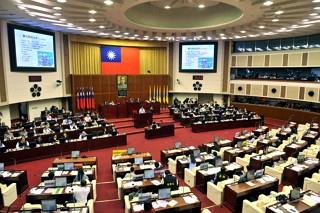Mayor Presents First Administrative Report at Taipei City Council
Mayor Ko Wen-je delivered his first City Administration Report at Taipei City Council on April 14. Under the guidelines of “One Hundred Days Reform, Four Years Leap, and Taipei in Fifty Years,” he noted that his administration will continue to work towards the objectives of “Social Justice,” “City of Culture,” “Health and Safety, Caring and Sharing, Community Empowerment, and Transparency.”
Ko stressed that the most important agenda during his first 100 days in office has been to restore trust in the government. Achievements include dismantling of unused bus lanes on Zhongxiao West Road; negotiating with Ministry of Education on exam-free school admissions; establishing Clean Government Committee and starting investigations into five projects; planning public housing; setting up joint procurement center; implementing structural improvements for 226 home additions, and taking initiatives to boost entrepreneurship among others.
According to the mayor, the next phase is to transform Taipei into a metropolis that is intelligent, attractive, and liveable in four years’ time.
The integration of mass transportation tools will be a priority. With the MRT network completed, public bus routes will be overhauled to further boost public transportation usage percentage to 70%.
Other missions include incorporating city services; establishing road, conduit management center, and smart city committee; allowing greater access to government data; introducing smart and eco products to public facilities; and improving the i-voting system.
To add to Taipei’s appeal, the mayor emphasized that it is imperative to ensure the success of both 2016 World Design Capital and 2017 Universiade. Other policies include revitalizing Taipei Railway Workshop and Taipei Beer Factory; recreating the skyline of Taipei; improving the four major river systems; inaugurating the Digital Art Center and Taipei Pop Music Center; and building the second fine arts museum.
Making Taipei a pleasant city for living, Ko noted that specific policies need to be formulated to address the four aspects closely related to people’s daily life—food, medical service, dwelling, and transportation. Examples include the provision for school lunch safety and facilitated execution of urban renewal projects.


![Taiwan.gov.tw [ open a new window]](/images/egov.png)
